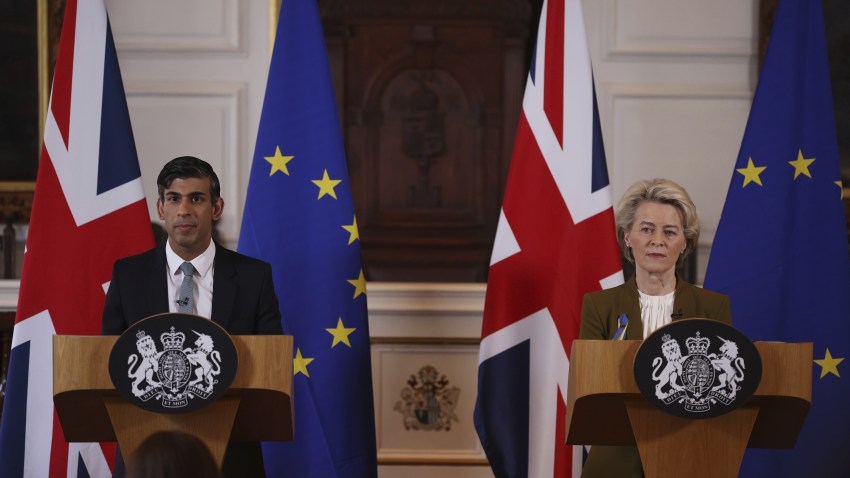Lawmakers in Brussels are still going through the details of the Windsor Framework deal announced by British Prime Minister Rishi Sunak and European Commission President Ursula von der Leyen on Monday. The key question they are asking is: Has the European Union compromised too much by creating an emergency break instrument that could be easily abused?
The agreement, parts of which must be approved by EU national governments and the European Parliament, is meant to solve the long-running dispute over whether and how to adjust the Northern Ireland Protocol of Britain’s divorce deal with the EU. The protocol, which created a border in the Irish Sea between Northern Ireland and the rest of the U.K., was devised in 2019 by then-Prime Minister Boris Johnson, who called it his “oven-ready” solution to avoid the need for a hard customs border between Northern Ireland and the Republic of Ireland. Such a land border would violate the Good Friday Agreement, something both the EU and the U.S. had indicated would be unacceptable.
From the beginning, Johnson feigned ignorance about what his deal would entail, telling Northern Irish businesses they would face “no forms, no checks, no barriers of any kind” to receive goods from the rest of the United Kingdom. That, of course, was a lie. In 2021, when the customs requirements started kicking in, the Democratic Unionist Party, or DUP, revolted. It later blocked Northern Ireland’s regional parliament, Stormont, from operating after elections in May 2022.

